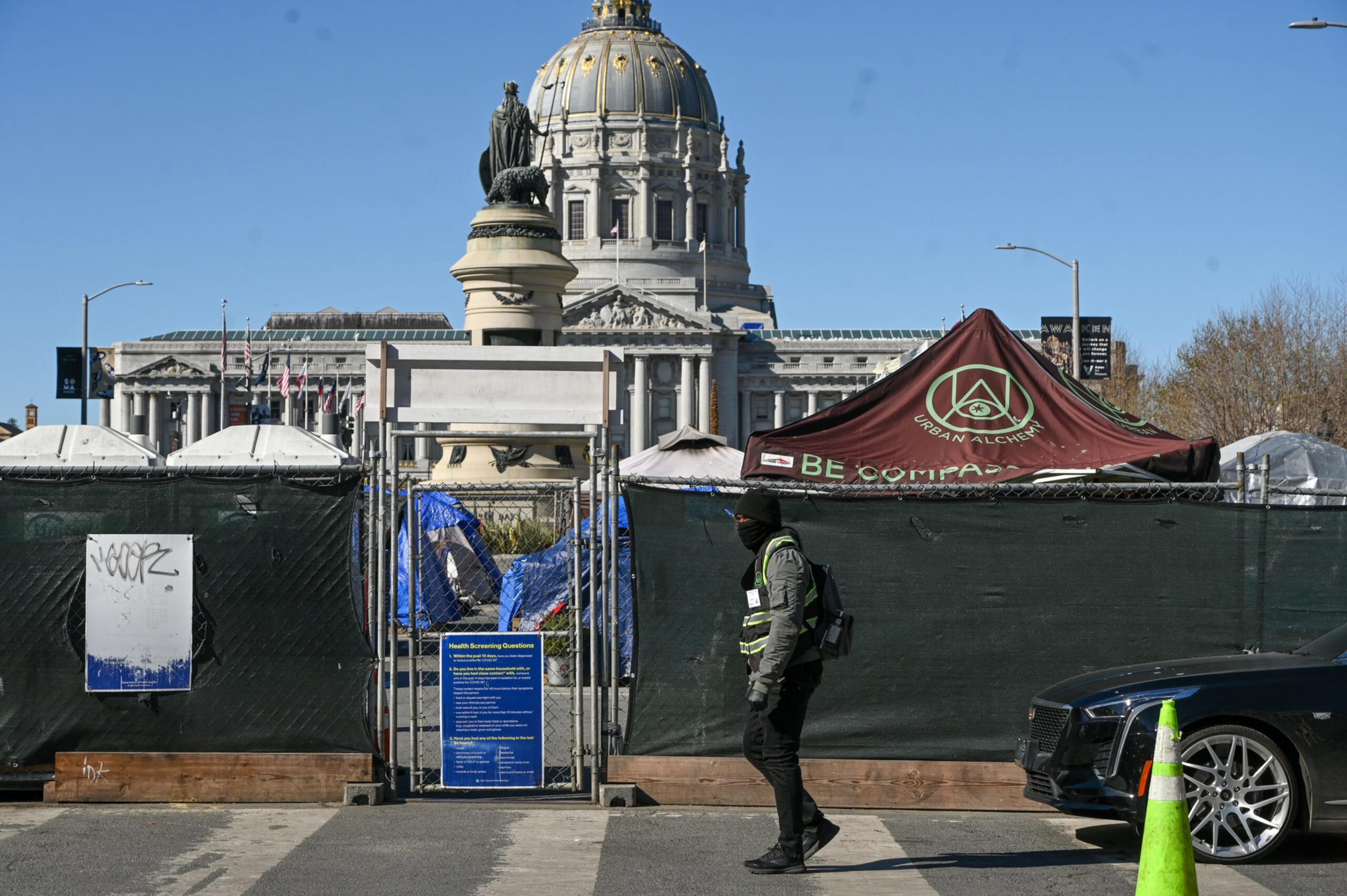With billions of dollars spent on homelessness, San Francisco’s civil grand jury found that the city needs to better evaluate the hundreds of nonprofits tasked with solving the crisis.
The civil grand jury, a civilian oversight body made up of 19 San Francisco residents, wrote in a report that the Department of Homelessness and Supportive Housing will spend some $2 billion on more than 300 homeless-related nonprofit contracts by 2030. But inconsistent monitoring of those contracts raises questions about whether nonprofits are delivering adequate services, the jury said.
“If those services are to meaningfully reach the homeless individuals they are intended to help, [the department] must effectively draft and oversee these contracts,” the report said.
Several nonprofit contracts are measured by the completion of activities rather than the achievement of outcomes, the report said.
The jury used the example of Urban Alchemy, a fast-growing nonprofit with contracts to perform street outreach and run homeless shelters. At least one of the nonprofit’s contracts is evaluated based on whether Urban Alchemy submitted data about its clients, rather than whether that data points to positive outcomes, the report said.
The jury recommended that the city standardize its evaluation of nonprofit contracts to measure outcomes, consolidate program monitoring and improve the metrics it uses to track progress. The jury’s findings come alongside tighter scrutiny of the city’s social services contracts and whether departments are properly tracking how dollars are spent. The report requires that Mayor London Breed’s office respond to its findings within 60 days.
The city’s reliance on nonprofits for social services fell under a microscope last year after a series of scandals raised concerns that taxpayer dollars were being misused and vulnerable clients were being put at risk.
In one instance, a drug treatment nonprofit called Baker Places, which is funded by the Department of Public Health, asked the city for two emergency bailouts and threatened to close some of its programs.
Investigations by The Standard found that five of Baker Places’ clients had fatally overdosed or committed suicide while in its programs. A top Department of Public Health official, Dr. Lisa Pratt, also improperly held a part-time job for the nonprofit alongside her full-time role as the lead doctor in the city’s jails.
In April, the city blocked a nonprofit called the United Council of Human Services, which ran a homeless shelter in the Bayview neighborhood, from future contracts after an audit accused the nonprofit of flouting city rules and called for a criminal probe into its management.
Another investigation by The Standard found that the United Council of Human Services was among a group of nonprofits that received more than $25 million in city funds while in violation of state law that barred them from receiving or spending funds. On Tuesday, the Board of Supervisors passed a law aimed at resolving that issue, requiring nonprofit agencies to submit documents confirming their nonprofit status.
At the same time, nonprofits have raised concerns that the city’s contracting process is onerous and often duplicative.
The Department of Homelessness and Supportive Housing said in a statement that it’s in the process of developing new performance metrics that it plans to finalize this summer.
“When the department was formed in 2016, we inherited contracts from several different City departments that had different terms, program designs, outcome measures and standards,” the department said. “Over the years we have begun to standardize these contracts and have more work to do.”
